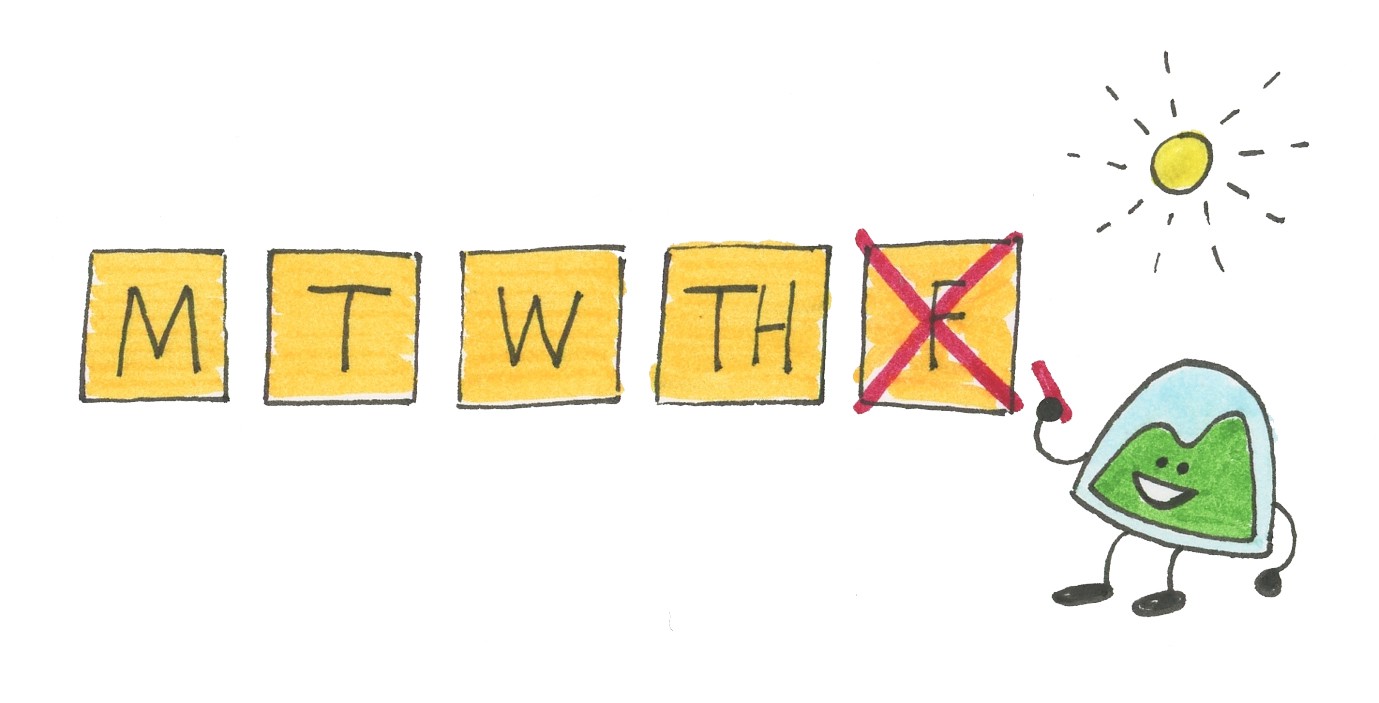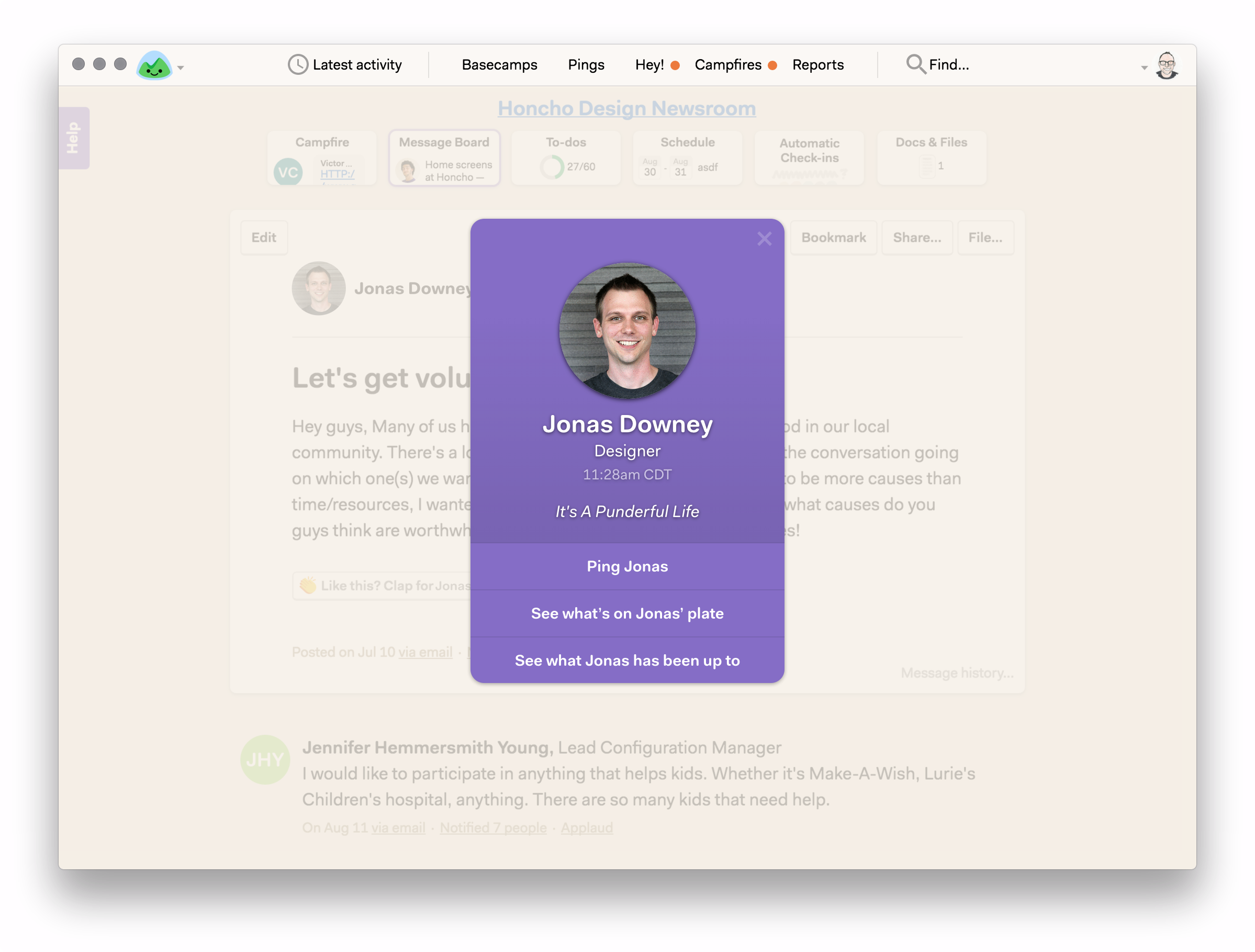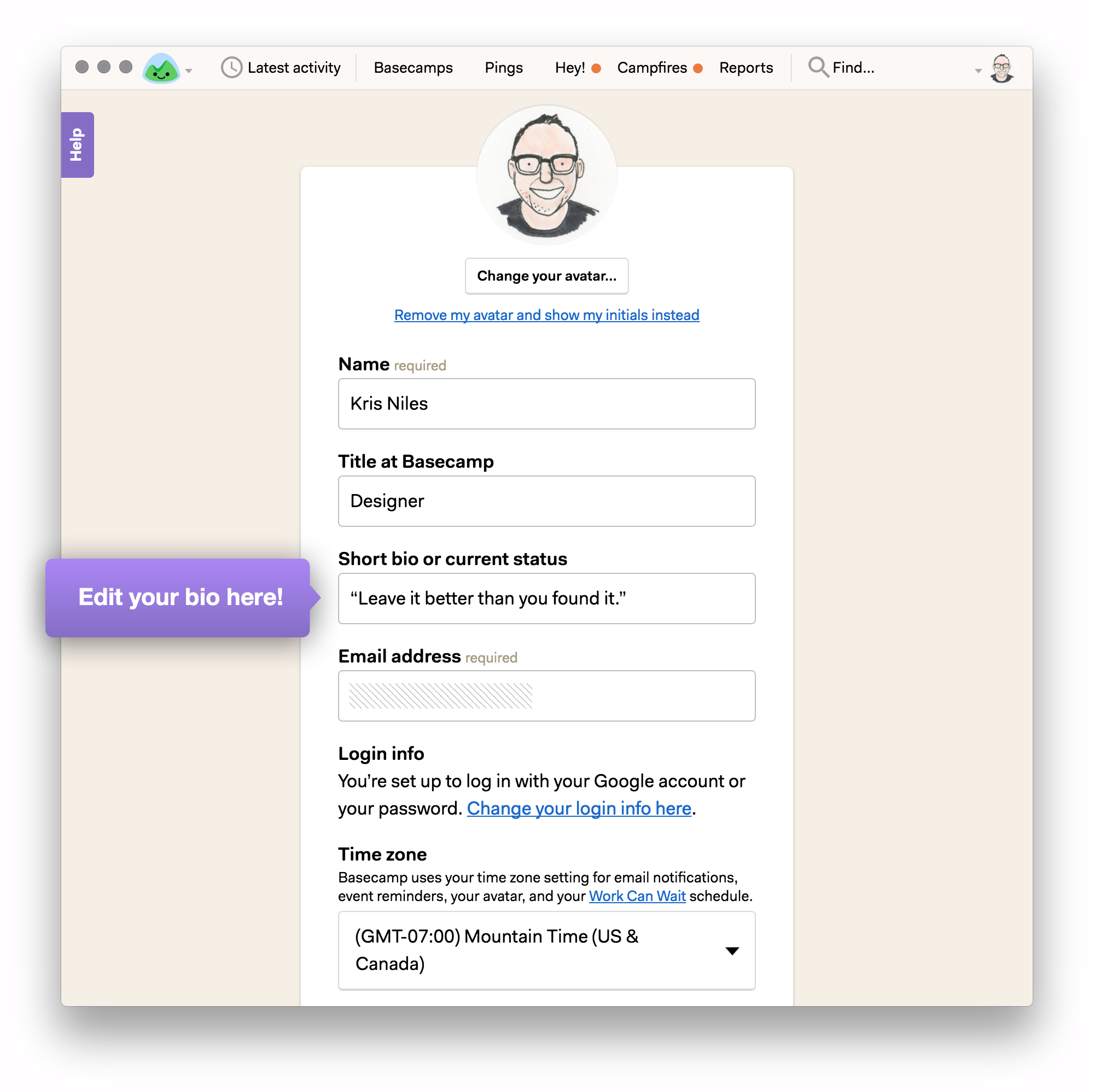
(And why you should too)
As I write this it’s the first week of May, and there’s an energetic buzz in the air — because it means that Summer Hours are about to start here at Basecamp. The description of Summer Hours in our employee handbook is simple:
During summer, we work 4-day work weeks, aka “summer hours”. Summer hours are in effect from May 1 through August 31 each year.
Summer Hours are one of my favorite practices at Basecamp — but not just because they are an extra day off each week. Keeping Summer Hours hones our prioritization skills and breathes fresh energy into our work.
I think it’s a practice more businesses should adopt, and here’s why:
Summer Hours hone prioritization
When we say 4-day work weeks (32 hours), we mean it. We aren’t cramming 40 hours into 4 days. This is essential to our practice of Summer Hours. Why? The key is in the constraint.
Removing a day each week forces you to prioritize the work that really matters, and let the rest go. It’s not about working faster, but learning to work smarter. It’s about honing your prioritization, scope hammering and judo skills.
Summer Hours energize and connect us
During the summer here in Colorado, my family loves spending time outside camping and hiking. Having three-day weekends to do that feels like a luxury of time. We don’t feel rushed or stressed, and I return to work each Monday energized — like I’ve been on a mini-vacation.
Adding to that energy, in our Basecamp HQ we have a “What did you do this weekend?” automatic check-in where everyone posts pictures and shares stories of their weekend adventures. This “non-work” check-in strengthens connections between everyone on the team, which is especially important for a remote company.
Summer Hours are seasonal
The most important aspect of what makes Summer Hours effective for us is seasonality. Because Summer Hours aren’t normal hours, we look forward to them and take advantage of them — they are a special treat.
Another side effect of seasonality is that when we transition back to normal hours, having 5 days a week feels like a luxury of time! We put our newly honed prioritization skills to good use, and get even more meaningful work done. It’s a virtuous cycle of improvement that builds season after season.
Your Summer Hours
I wrote this post to encourage you to think about how you can benefit from adding Summer Hours to your work. Here are two experiments I recommend trying:
- Add a constraint to your week: Pretend you will be out of the office this Friday. If that were true, how would it change your week? What would you focus on? What would you cut? I do this thought experiment every Monday to help prioritize my week.
- Turn a vacation into a season: Instead of taking a two week vacation, what if you took Friday off for the next two months? How would that change your enjoyment of the summer season? I’ve found it to be more rewarding and relaxing.
Happy experimenting, and have a great summer!
Do you have similar seasonal or productivity experiments that you try in your work? If so, I’d love to hear about them!



